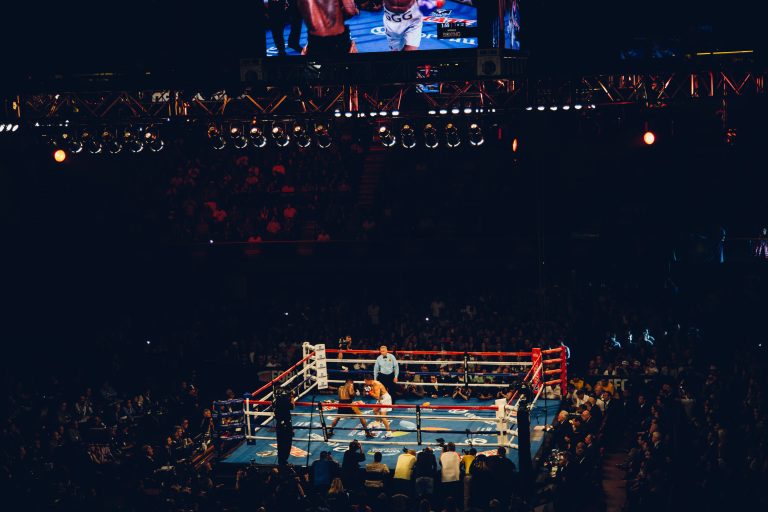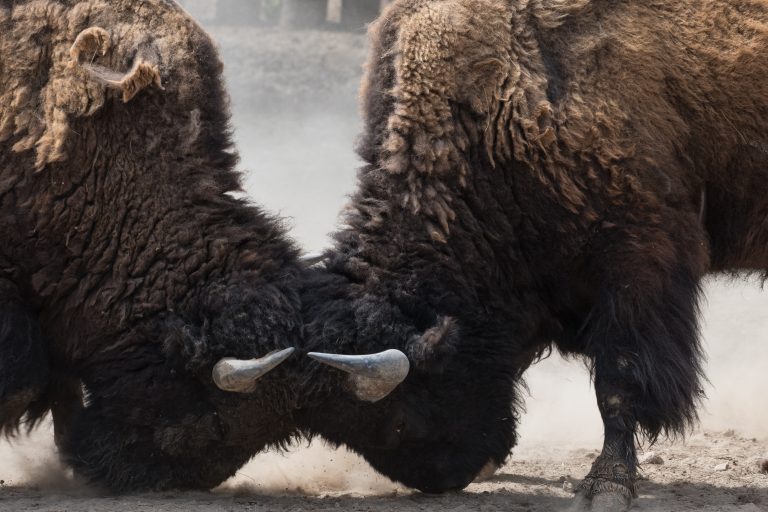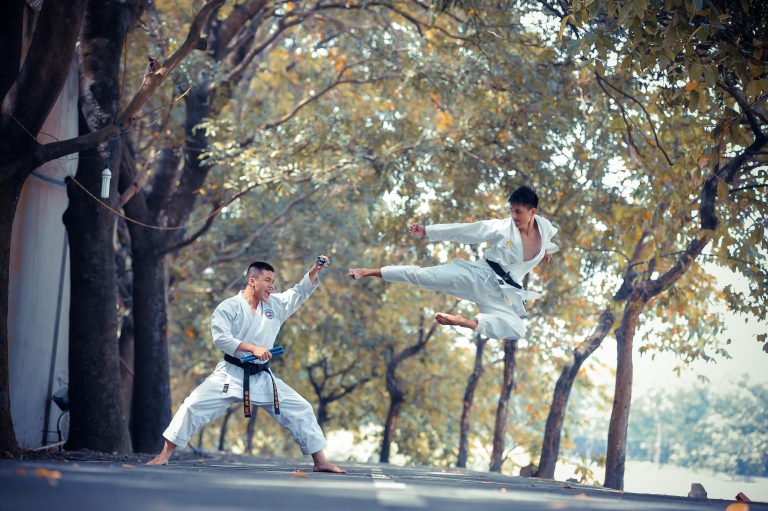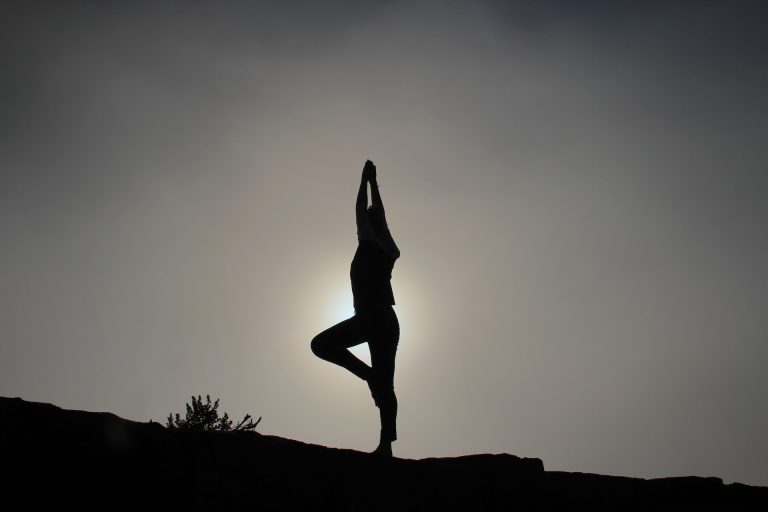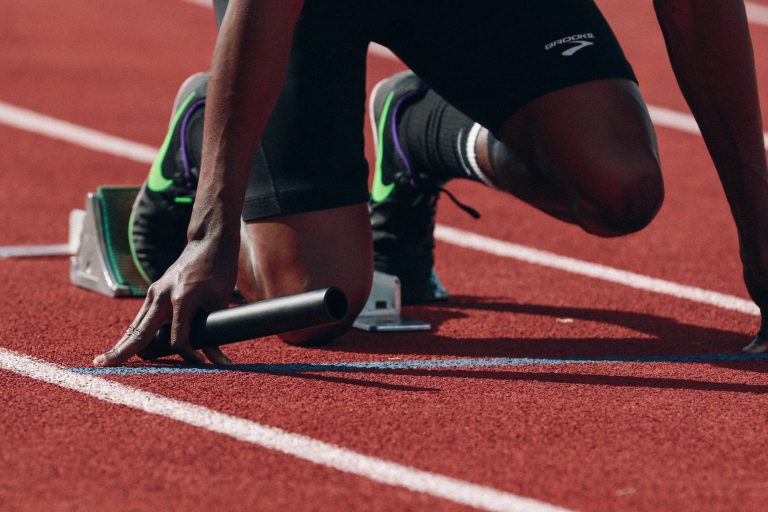Karate Training Guide: Alles was du wissen musst
Karate ist eine Kampfsportart, die eine Mischung aus Kraft, Schnelligkeit, Technik und Ausdauer erfordert. Um erfolgreich im Karate zu sein, ist es wichtig, ein gutes Training zu haben. In diesem Karate-Training-Guide werden wir uns einige der Grundlagen des Karate-Trainings und einige Tipps und Tricks ansehen, um dein Trainingserlebnis zu verbessern.
Grundlagen des Karate-Trainings
Das Karate-Training besteht aus verschiedenen Komponenten, die alle in einem Trainingsprogramm kombiniert werden sollten, um ein erfolgreiches Trainingsergebnis zu erzielen. Hier sind einige der wichtigsten Elemente des Karate-Trainings:
- Kihon: Grundlegende Techniken wie Tritte, Schläge und Blöcke. Kihon ist wichtig, um eine solide Grundlage zu schaffen.
- Kata: Eine festgelegte Abfolge von Techniken. Kata ist die Umsetzung des Kihon in eine bestimmte Reihenfolge.
- Kumite: Der Kampf mit einem Partner. Kumite ist wichtig, um die Techniken in einer realistischen Situation anwenden zu lernen.
- Konditionierung: Das Training zum Aufbau von Kraft, Ausdauer und Flexibilität. Konditionierung ist wichtig, um die körperlichen Anforderungen des Karate auszuhalten.
Tipps und Tricks für ein erfolgreiches Karate-Training
Um das Beste aus deinem Karate-Training herauszuholen, solltest du folgende Tipps und Tricks berücksichtigen:
- Trainiere regelmäßig: Nur durch regelmäßiges Training kannst du Verbesserungen erzielen.
- Bleib fokussiert: Während des Trainings solltest du vollständig auf deine Techniken und deinen Körper konzentriert sein.
- Arbeite an deiner Kondition: Karate erfordert Ausdauer und Kraft. Ein Training zur Konditionierung kann dir helfen, diese Anforderungen zu erfüllen.
- Arbeite an deiner Technik: Technik ist entscheidend für eine erfolgreiche Karate-Praxis. Eine gute Technik kann auch Verletzungen vermeiden.
- Variiere dein Training: Verändere dein Karate-Training regelmäßig, um Körper und Geist herauszufordern.
- Arbeite mit einem Partner: Kumite ist ein wichtiger Bestandteil des Karate-Trainings. Arbeite mit einem Partner, um deine Techniken in einem realistischen Szenario anwenden zu können.
Fazit
Karate ist eine hervorragende Kampfsportart, die Kraft, Schnelligkeit, Technik und Ausdauer erfordert. Ein durchdachtes Training in Kihon, Kata, Kumite und Konditionierung wird dabei helfen, ein erfolgreiches Trainingserlebnis zu erzielen. Vergiss nicht, regelmäßig zu trainieren und auf deinen Körper und deine Technik zu achten. Nutze diese Tipps und Tricks, um das Beste aus deinem Karate-Training herauszuholen.
Karate Training Guide: Alles was du wissen musst FAQs
Karate is a Japanese martial art that has been gaining popularity since its creation in the 19th century. It is a form of self-defense that involves punches, kicks, and strikes to vulnerable parts of the body. If you’re interested in learning this martial art, you’ve come to the right place. In this article, we will answer some of the most frequently asked questions about karate training.
1. What is karate and how does it work?
Karate is a martial art that originated in Japan. It involves striking with the hands, feet, elbows, and knees. Karate practitioners learn how to use their bodies to generate power and speed in their strikes. However, karate is not just about physical strength; it also involves mental discipline and focus.
To be effective in karate, you have to learn how to use your opponent’s strength against them. This means that you need to be aware of your surroundings, be able to read your opponent’s movements, and respond quickly and accurately.
2. What are the benefits of training in karate?
Training in karate has many benefits, both physical and mental. Here are some of the most important benefits:
– Improved physical fitness: Karate training helps to improve your strength, flexibility, and endurance. It also helps to burn calories and improve your cardiovascular health.
– Self-defense skills: Karate teaches you how to defend yourself against a potential attacker. You will learn how to strike vulnerable parts of the body, how to generate power in your strikes, and how to use your opponent’s strength against them.
– Self-confidence: As you progress in your karate training, you will gain more self-confidence. You will learn how to control your body and your movements, and you will become more aware of your surroundings.
– Better focus and discipline: Karate requires a great deal of focus and discipline. You will have to learn how to control your emotions and your thoughts, and how to stay calm and focused even in stressful situations.
3. What is the best age to start training in karate?
Karate can be practiced by people of all ages, but the best age to start training is around 6-7 years old. At this age, children have developed better coordination, balance, and concentration skills. However, it is never too late to start training in karate. Some people start training in their 30s, 40s, or even later in life.
4. What equipment do I need for karate training?
For karate training, you will need the following equipment:
– Karate uniform (gi): This is a white or black suit that consists of a jacket, pants, and a belt.
– Belt: The color of your belt will indicate your skill level in karate.
– Hand and foot pads: These pads are used to protect your hands and feet during sparring.
– Mouthguard: This is essential to protect your teeth and mouth during sparring.
– Headgear: This is only necessary if you plan to engage in full-contact sparring.
5. How often should I train in karate?
To make progress in karate, you should aim to train at least two to three times a week. However, the frequency of your training will depend on your goals and your schedule. Some people train every day, while others only train once a week. It’s important to find a training schedule that works for you and to stick to it.
6. Can I learn karate by myself?
While it is possible to learn some karate techniques by yourself, it is not recommended. You need to have a qualified instructor to teach you the correct techniques and to correct your form. A good instructor will also help you to develop the mental discipline and focus that is necessary for karate.
7. What should I expect in my first karate class?
In your first karate class, you can expect to learn the basics of the martial art. This may include stretching, warm-up exercises, basic kicks and punches, and some self-defense techniques. Your instructor will also explain the principles of karate and the etiquette that is expected in the dojo.
8. How long does it take to become a black belt in karate?
The time it takes to become a black belt in karate varies from person to person. Generally, it takes about 5-7 years of regular training to reach the level of black belt. However, this can vary depending on your dedication, skill level, and the requirements of your martial arts school.
9. Is karate a good workout?
Yes, karate is an excellent workout that can help you to improve your physical fitness. It involves a lot of cardiovascular exercise, as well as strength training and flexibility exercises. Karate training can help you to burn calories, build muscle, and increase your endurance.
10. Is karate safe?
Karate can be safe if it is practiced correctly and with proper supervision. However, like any contact sport, there is a risk of injury. To minimize the risk of injury, it is important to wear the proper protective equipment during sparring, to train at a level that is appropriate for your skill level, and to follow the rules of the dojo.
Conclusion
Karate training can be a rewarding and challenging experience. Whether you’re interested in learning self-defense, improving your physical fitness, or developing mental discipline and focus, karate is an excellent choice. By following the tips in this article, you can get started on your karate journey and work towards achieving your goals.
Inhaltsverzeichnis

